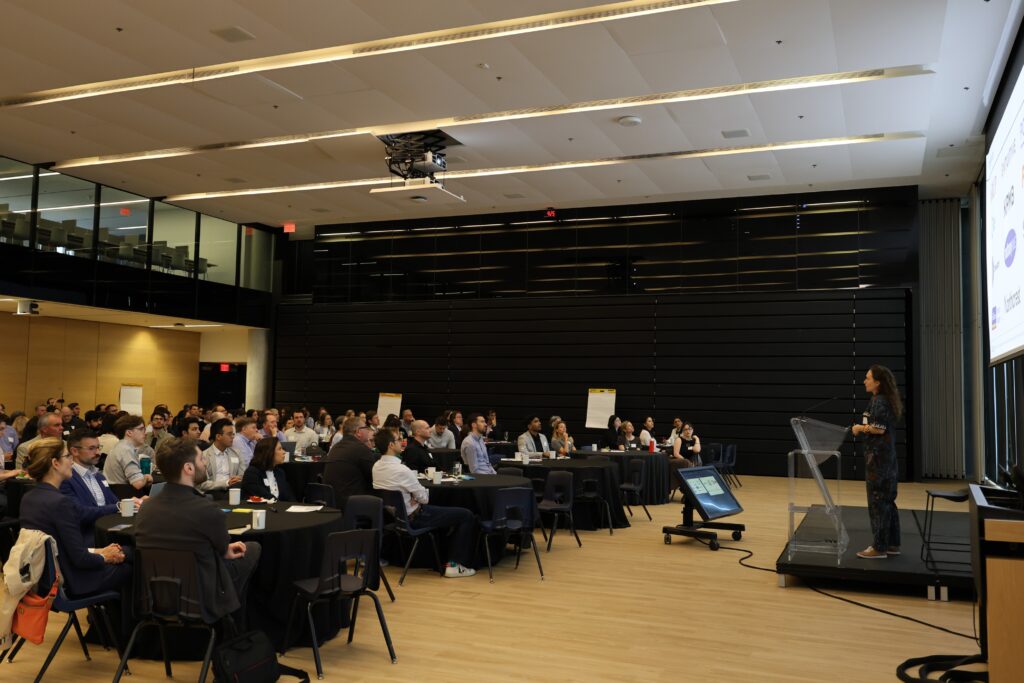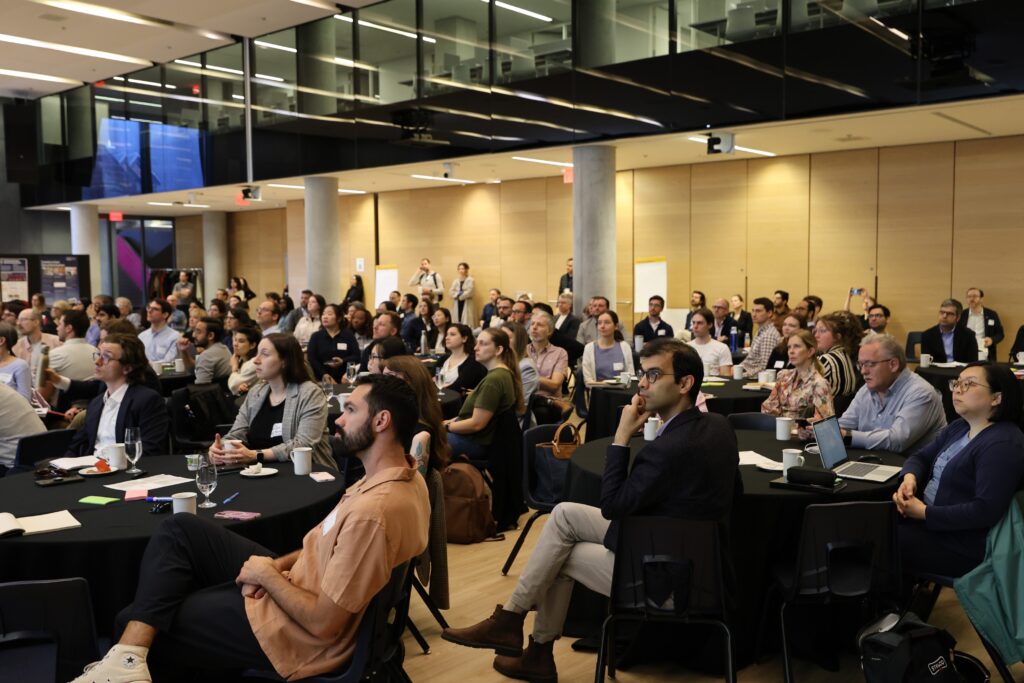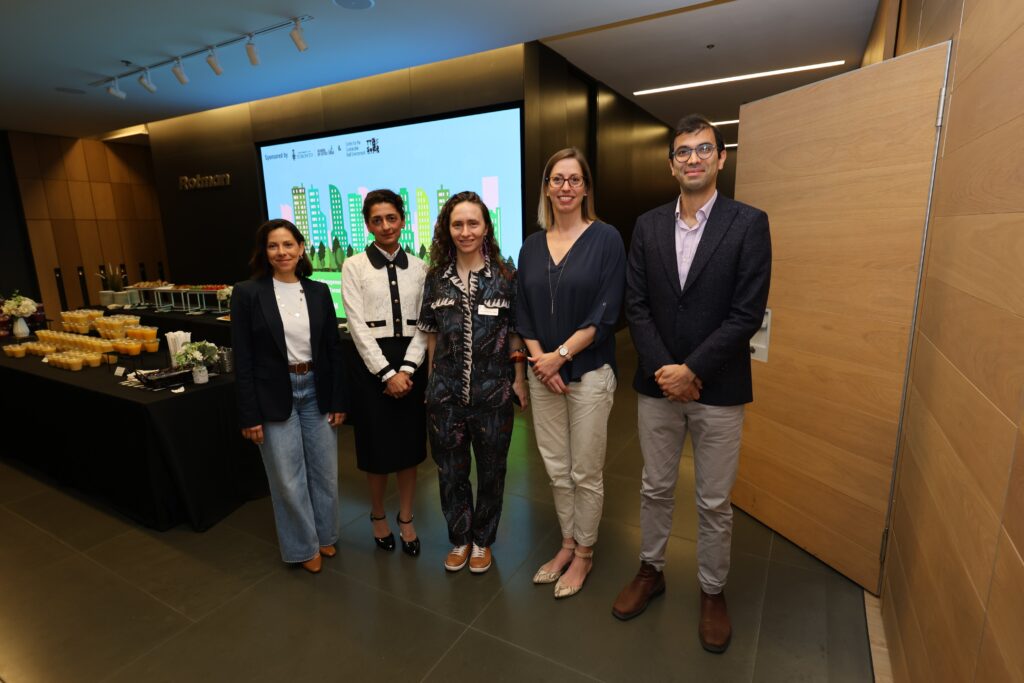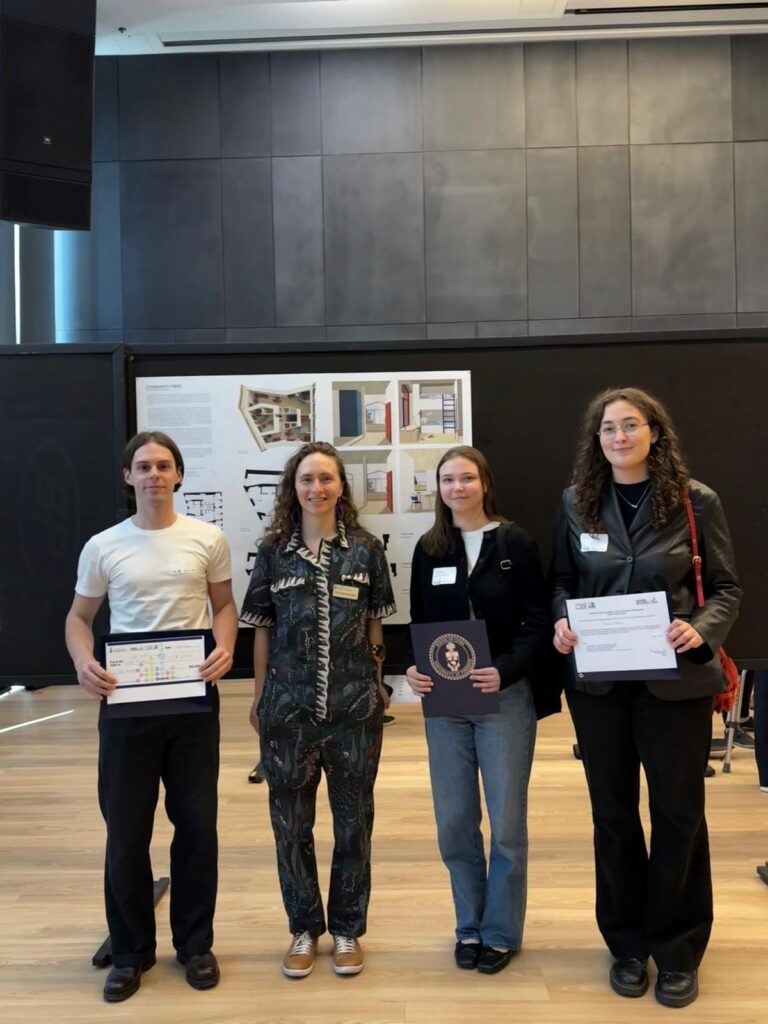On May 7, 2025, over 200 delegates gathered at the University of Toronto for the second Embodied GHG Symposium, co-hosted by Prof. Shoshanna Saxe, director of the Centre for the Sustainable Built Environment (CSBE) and the School of Cities. The symposium brought together researchers, policymakers, industry professionals, and students to explore one of the most pressing questions in the built environment today: How can we scale up infrastructure and housing to meet urgent demand, while dramatically reducing greenhouse gas (GHG) emissions?
Canada faces a dual challenge: a growing infrastructure and housing deficit – projected to require 5.8 million new homes by the early 2030s – and a climate imperative that demands we reduce emissions and resource use across all sectors. The symposium focused on bridging this tension, exploring strategies to build more with less through sufficiency and efficiency pathways.
The day opened with a keynote from Michael Eliason, architect and cofounder of Larch Lab, who shared inspiring case studies that support low-carbon, high-quality housing.
Prof. Daman Panesar at the University of Toronto led the conversation on sufficiency, by inviting participants to reflect on the balance between meeting basic needs and living within the ecological limits of our biosphere. This interactive session highlighted the interplay between individual aspirations, collective responsibility, and the physical and financial limits of our built environment.
The symposium also featured the latest research from CSBE. Dr. Santiago Zuluaga, postdoctoral fellow at CSBE, presented his work on using building permit data to estimate embodied GHG emissions in residential buildings at scale. MASc student Avery Hoffer also presented his work that explores whether tall buildings are really worse for embodied carbon.
Following the poster session, the symposium concluded with the “Student Design Competition: Small Housing for Sustainability,” which challenged students to design livable housing units no larger than 30 square metres per person. The two finalists impressed the judging panel with innovative, climate-conscious solutions, and the winning team – Scott McCallum and Leyla Godfrey – was awarded a $2,000 prize.
Full video recording can be found here.



